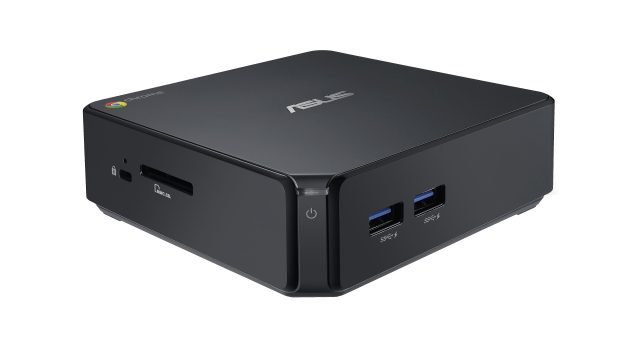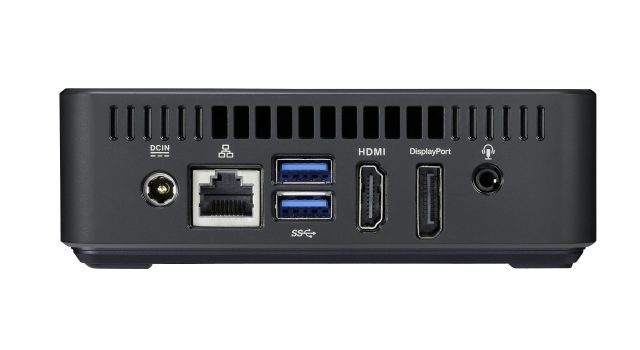
Google's Chrome OS continues to show up on more and more devices, and while the majority of them are laptops, it looks like desktop users are going to have quite a few options as well. Joining LG's upcoming Chromebase all-in-one is the Asus Chromebox, a headless mini-PC that goes on sale in March for $179. At 4.88" by 4.88" by 1.65", it's similar to but slightly larger than Intel's more versatile NUC desktop in every dimension.
Despite its desktop-shaped package, the Chromebox is the same on the inside as many recent Intel Chromebooks, including the Acer C720. The base model includes a 1.4GHz dual-core Celeron 2955U based on Intel's Haswell architecture, integrated Intel graphics, 2GB of RAM, 16GB of solid-state storage, dual-band 802.11n with Bluetooth 4.0, and an SD card reader and Kensington lock slot. AnandTech reports that the Chromebox will also be available in higher-end variants with a 1.7GHz Core i3-4010U and a 2.1GHz (3.3GHz Turbo) Core i7-4600U and up to 4GB of RAM across its two DIMM slots. The Core i7 version apparently won't be available on American shores, though.

The Asus Chromebox includes many of the features of Samsung's $329 Chromebox originally introduced in 2012 but at a substantially lower price. Samsung's model had more display outputs but lacked HDMI, and its Sandy Bridge Celeron CPU also needed a cooling fan that the Asus version doesn't need.
reader comments
130